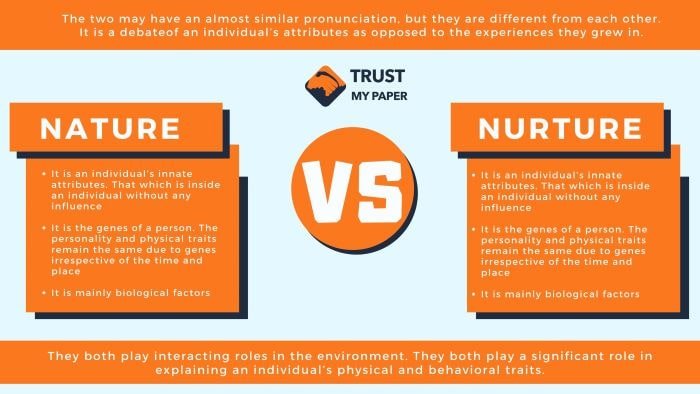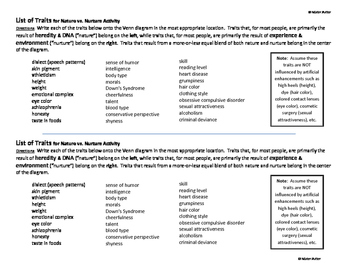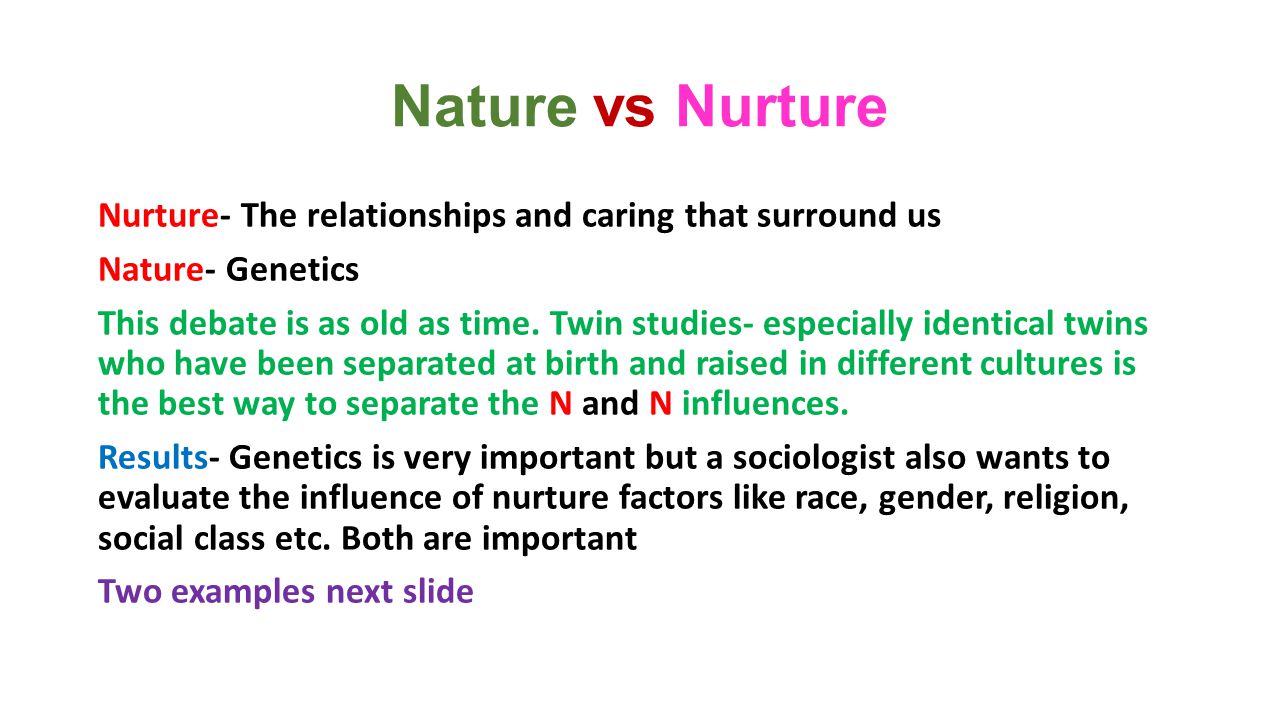The nature versus nurture debate is a longstanding one in the field of sociology, as well as in many other disciplines, including psychology and biology. At its core, this debate centers on the relative importance of nature (i.e., inherited genetic traits and characteristics) versus nurture (i.e., environmental influences and experiences) in shaping an individual's behavior and characteristics.
One side of the debate argues that nature plays a more significant role in shaping an individual's characteristics, while the other side argues that nurture is more influential. Those who argue that nature is more important often point to the presence of genetic predispositions or traits that are passed down from one generation to the next, and which can influence an individual's behavior and characteristics. For example, research has shown that certain genetic predispositions can increase an individual's likelihood of developing certain mental health conditions, such as depression or anxiety.
On the other hand, those who argue that nurture is more important often point to the role that environmental factors and experiences play in shaping an individual's behavior and characteristics. For example, research has shown that the quality of an individual's early childhood experiences, such as their relationships with their caregivers, can have a significant impact on their development and later behavior. Additionally, social and cultural factors, such as the community an individual grows up in and the values and beliefs that are prevalent in that community, can also play a role in shaping an individual's behavior and characteristics.
Despite the ongoing nature versus nurture debate, many experts believe that both nature and nurture play a role in shaping an individual's characteristics. In other words, it is likely that both inherited genetic traits and environmental influences contribute to an individual's behavior and characteristics in some way. This is known as the nature-nurture interaction, and it suggests that the influence of either nature or nurture may depend on the specific characteristic or behavior being examined.
In conclusion, the nature versus nurture debate is a complex one that has been the subject of much research and discussion within the field of sociology and beyond. While it is clear that both nature and nurture play a role in shaping an individual's characteristics, the relative importance of each may vary depending on the specific characteristic or behavior being examined. Ultimately, a better understanding of the nature-nurture interaction may help us to better understand and predict individual behavior and characteristics.







